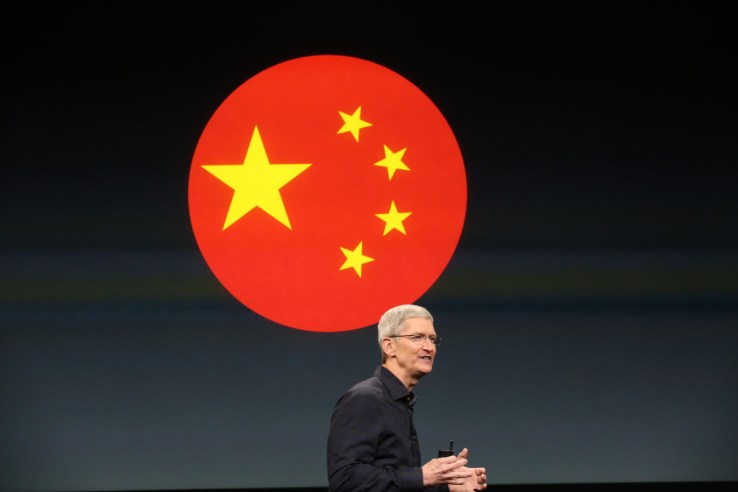Here’s Tim Cook’s explanation on why some VPN apps were pulled in China

Last weekend Apple removed all major VPN apps from the App Store in China. In a statement the next day provided to TechCrunch, it explained that China requires all VPN developers to have a license issued by the government, and they’ve been required to remove some VPN apps in China that don’t meet the new regulations.
The three sentence statement didn’t really go into depth on the situation, but today on the company’s earnings call Apple CEO Tim Cook gave a much more detailed explanation of the move and Apple’s perspective on dealing with regulatory issues related to China (and other governments).
Here’s the full statement:
The central government in China back in 2015 started tightening the regulations associated with VPN apps. We have a number of those on our store. Essentially, as a requirement for someone to operate a VPN they have to have a license from the government there. Earlier this year, they began a renewed effort to enforce that policy. We were required by the government to remove some of the VPN apps from the app store that don’t meet these new regulations. We understand those same requirements on other app stores, as we check through that’s the case. Today there’s still hundreds of VPN apps on the app store, including hundreds by developers outside China. We would obviously rather not remove the apps, but like we do in other countries we follow the law wherever we do business. We strongly believe participating in markets and bringing benefits to customers is in the best interest of the folks there and in other countries as well.
We believe in engaging with governments even when we disagree. This particular case, we’re hopeful that over time the restrictions we’re seeing are loosened, because innovation really requires freedom to collaborate and communicate. I know that is a major focus there. That’s sort of what we’re seeing from that point of view. Some folks have tried to link it to the U.S. situation last year. They’re very different. In the case of the U.S., the law in the U.S. supported us. It was very clear. In the case of China, the law is very clear there. Like we would if the U.S. changed the law here, we have to abide by them in both cases. That doesn’t mean that we don’t state our point of view in the appropriate way, we always do that. So, hopefully, that’s a little bit… probably more than you wanted to know, but I wanted to tell you. – Apple CEO Tim Cook
Cook’s comments suggest that this particular issue may not have been big enough for Apple to pick a fight over. Because while Cook does note that they’d rather not remove the apps, and Apple believes in engaging with governments when they disagree, the company didn’t take any direct action this time, at least in the form of a lawsuit or formal complaint.
However, Cook did emphasize that in this situation the law is on China’s side, unlike the FBI iPhone unlocking saga last year where Cook reiterated that the law supported them.